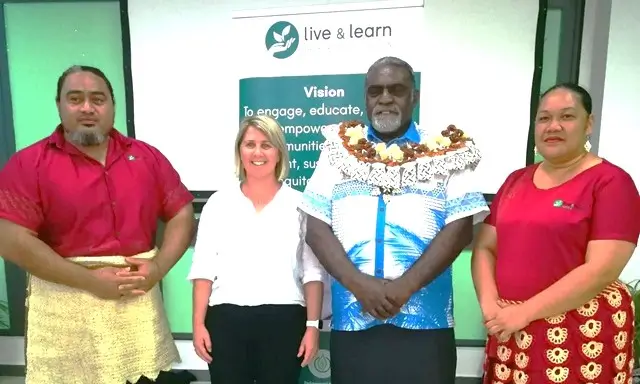
Nutrition-sensitive agriculture is the way forward in terms of addressing adaptation and resilience in the Pacific.
Assistant Agriculture Minister Tomasi Tunabuna said this at the opening of a Food Week Workshop in Nadi today.
Nutritive-sensitive agriculture is a food based approach to agricultural development which places nutritionally rich foods and dietary diversity at the heart of overcoming malnutrition and micronutrient deficiencies.
“The nutritive-sensitive agriculture approach involves designing and adopting a farming and cropping system that provides agricultural solutions to the prevailing nutritional problems,” he said.
“It recognizes the nutritional value of food for good nutrition, help diversify diets, addresses dimensions of malnutrition and obesity, and also addresses the importance of food and the agricultural sector in supporting rural livelihoods or the vulnerable ones.”
During his address, Mr Tunabuna shared a few successful strategies implemented in Fiji to help improve adaptation and resilience.
He said the Agriculture Ministry together with Live and Learn Fiji has been working in collaboration over the years in rural and informal settlements across Fiji.
“This partnership has seen a steady growth in community empowerment, especially in terms of enhancing knowledge and skills on food security. “Programs like distribution of food rations during the COVID 19 pandemic, planting of fruit trees in four informal settlements like Kilikani, Mataniborosisi, Wainikerekere, and Bilo, provision of nurseries, vegetable seeds, provision of food-cube technology (of the Atoll Food Features (AFF)), distribution of agricultural tools kits to households and technical training to empower those in these communities with the knowledge and skills on climate smart agricultural impacted the lives those vulnerable ones.
“Secondly, we have been promoting the production of our local food to increase the consumption of root crops, vegetables, and fruits in addressing food sovereignty.
“Programmes like backyard gardening for our vulnerable people, gardening for our primary and secondary schools, and commodity development activities are implemented annually to ensure food and nutrition security.”